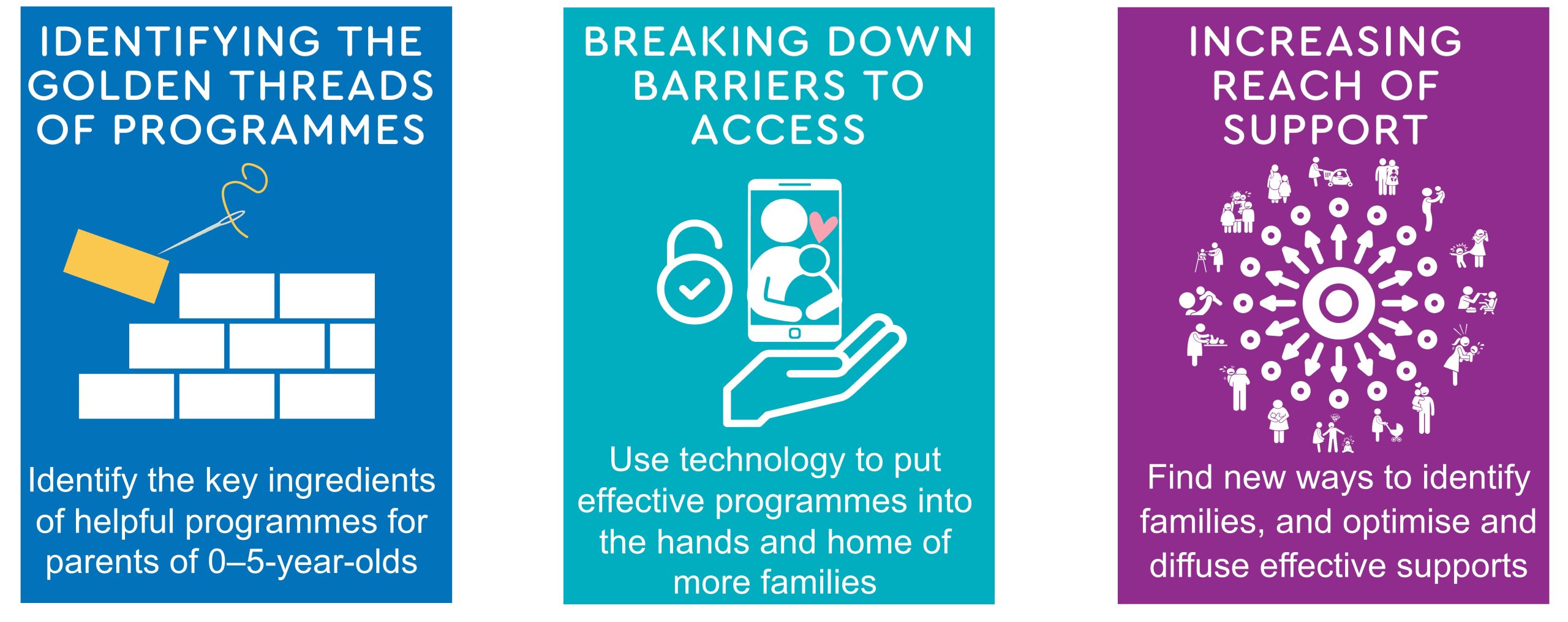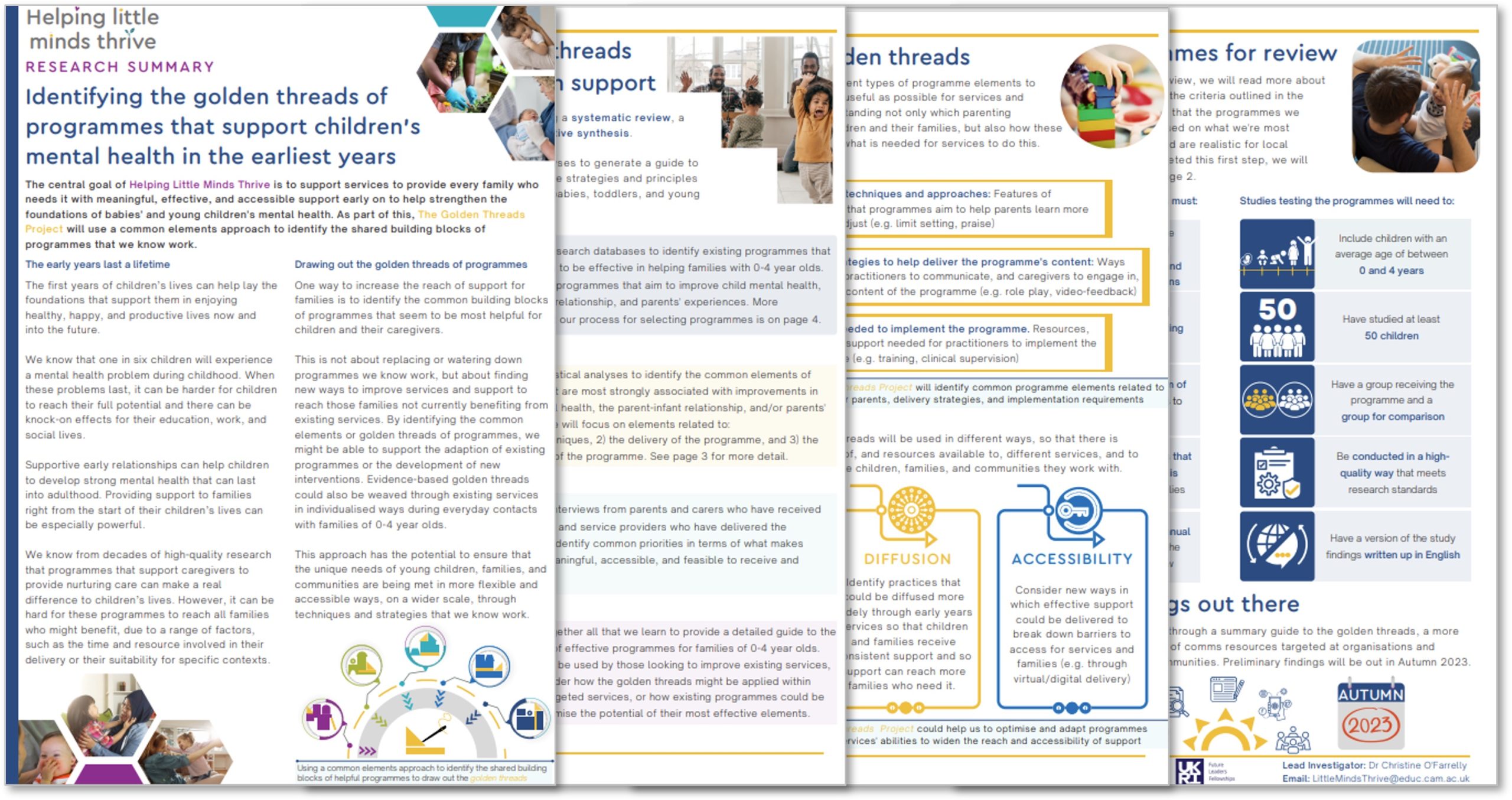It’s Infant Mental Health Awareness Week. At PEDAL, we are committed to conducting research that makes a difference to the lives of children and families right from the start. Our Helping Little Minds Thrive project is focused on the wellbeing of babies, young children, and their caregivers.
Helping Little Minds Thrive aims to provide the research insights needed to support services to provide every family who needs it with effective, accessible, and meaningful support early on. The right kinds of support can promote mental health and wellbeing, and reduce stress and distress for babies and young children in the here and now, as well as laying strong foundations for the future.
Early relationships matter
A key part of nurturing children’s early mental health is promoting the relationships they have with the important adults in their lives from, or even before, birth. Research shows that these early relationships play a unique role in boosting children’s health and happiness both in the here-and-now and in their life-long development. Offering families support to provide responsive and consistent care to their children right from the start of their parenting journey is a powerful way to make a real difference to the lives of young children.
Despite compelling evidence about the difference that effective support can make for children’s life chances, this hasn’t translated into a consistent offer in public health systems. There are a number of factors at play here. In some cases effective programmes only reach a tiny fraction of families who could benefit, usually because they are intensive and expensive to deliver. These programmes remain a critical part of our offer to families – but we need other ways to expand support to reach more families. In other cases, programmes that show real promise in tightly controlled research studies show a ‘voltage drop’ in their effectiveness when delivered in real world health systems. This can happen for a number of reasons, such as the programme not fitting with the demands of family life and busy service settings. These promising programmes might be adapted to be better suited to the needs and priorities of the families and service. To adapt services to be less expensive, or to be a better fit for families, services and communities, whilst retaining their impact, we must understand their most powerful features. This is what Helping Little Minds Thrive aims to do.
Helping Little Minds Thrive
The Helping Little Minds Thrive project began in mid-2022 funded by the UKRI and led by Dr Christine O’Farrelly’s team. The project is driven by three key aims:

The Golden Threads Project
The Golden Threads aspect has been the first part of this project to get underway. Through this work we aim to identify the common elements of programmes that are effective in supporting mental health in 0 – 5 year olds. We are utilising the same innovative “common elements” approach used by PEDAL, the Early Intervention Foundation and the Nuffield Foundation to develop the Early Years Library for early childhood education practitioners – which involves finding the most effective features, or ‘golden threads’ in effective programmes.
This project isn’t about replacing or watering down programmes we know work, but about finding ways to improve services and support to reach those families not currently benefiting from existing services. Pinpointing the most effective features or ‘golden threads’ of programmes could help us to widen access to early parenting support by:
- ‘turning up the volume’ of golden threads in existing interventions
- weaving the golden threads through other services that support families
- delivering golden threads and effective programmes in new ways (e.g., online support) that reach more families
- developing new programmes, which incorporate the golden threads but are designed to work in specific contexts or with particular communities
So far, we have reviewed over 15,000 research studies to identify programmes that are targeted to parents of young children, are feasible for public health services to deliver, and have been shown to improve aspects of child development or parenting. Next, we will carry out an in-depth analysis of the common elements of these programmes that are most strongly associated with improvements in family wellbeing.
This work has the potential to ensure that the unique needs of young children, families, and communities are being met in more flexible and accessible ways, on a wider scale, through techniques and strategies that we know work.
By next year, we will have produced three key resources to share our findings:
- An evidence brief that draws together learning from existing evidence to identify what we know now about features of effective programmes.
- A systematic review of the evidence that summarises the impact of parenting interventions on child and family wellbeing.
- A golden threads practice guide that provides an in-depth look at evidence informed strategies and activities that can be used to support children and families.
You can find out more by contacting us via email at littlemindsthrive@educ.cam.ac.uk
Mental Health in Infancy
Hearing the term mental health in relation to babies and toddlers can be a little confusing. This may be because we more commonly associate the term with diagnosable mental illness and related therapies and medications, rather than thinking of the more positive side of mental health. Being mentally healthy means that we’re able to experience positive emotions and draw enjoyment from life, while having the capacity to cope with challenges that inevitably come our way. It’s these qualities – happiness, contentment, safety, enjoyment, and resilience – that we want babies to experience right from their earliest days, and that we hope our work can help to promote.
You can read more about our understanding of mental health in infancy and early childhood in some of the resources below.
- The PEDAL-UNICEF UK toolkit on understanding and supporting the mental health of babies and toddlers.
- PEDAL’s guest essay on understanding the journey of early childhood for the Royal Foundation’s Centre for Early Childhood.

